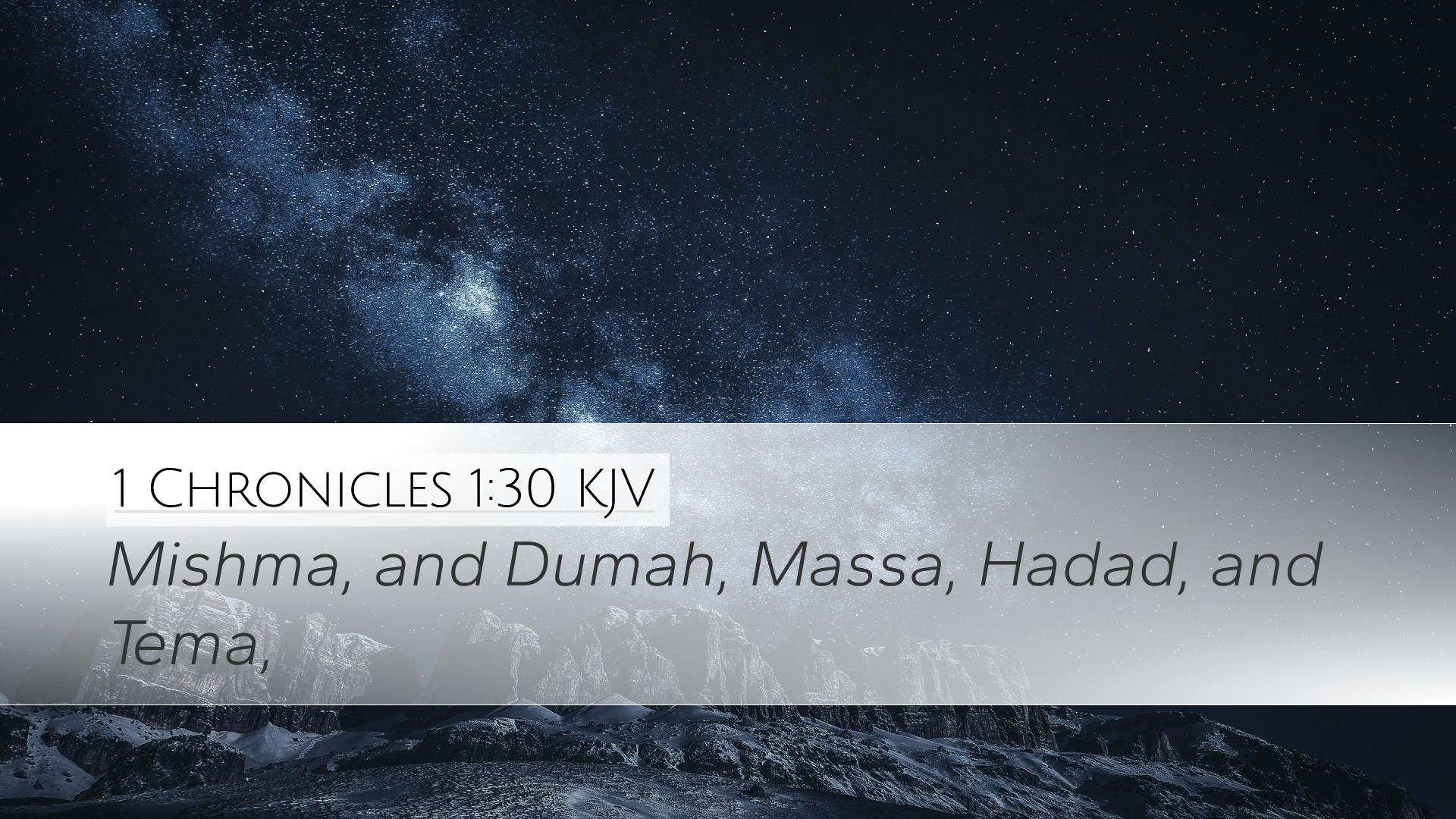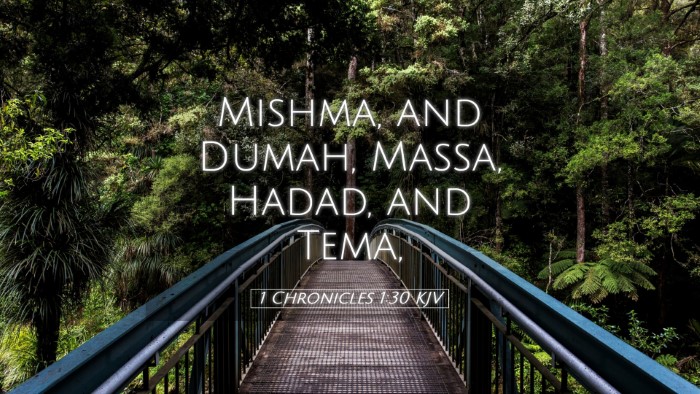Commentary on 1 Chronicles 1:30
Verse: 1 Chronicles 1:30 - "And the sons of Midian; Ephah, and Epher, and Hanoch, and Abida, and Eldaa. All these were the children of Keturah."
Introduction
This verse offers a genealogical record that is significant in the biblical narrative, particularly in understanding the descendants of Abraham through Keturah, his second wife after Sarah's death. This genealogy sheds light on the broader family structure and the nations that emerged from Abraham, reflecting on God's promise to make Abraham a father of many nations.
Historical Context
The lineage described in this passage connects to Abraham's broader family. Keturah's children represent a further extension of Abraham's legacy, integrating them into the Israelite identity. Understanding the tribal and ethnic origins of the Midianites, who were both kin and adversaries to Israel, enriches the theological and historical implications of the scripture.
Insights from Public Domain Commentaries
Matthew Henry's Commentary
Henry emphasizes the importance of genealogies in Scripture, illustrating how they serve to establish God's covenant throughout generations. He notes that Keturah's children, specifically the Midianites, play a role in the narrative of Israel. Henry implies that despite their mixed lineage, God had mercifully included this family in the blessings associated with Abraham. The mention of their names suggests not only their physical descendants but also their tribes' spiritual legacy in relation to Israel.
Albert Barnes' Notes
Barnes highlights the significance of the names of Midian’s sons—Ephah, Epher, Hanoch, Abida, and Eldaa—as reflective of the characteristics and identities that these tribes would hold. He asserts that Ephah symbolizes fruitfulness, aligning with the promise of God to bless Abraham’s lineage. Through each name, Barnes interprets a characteristic that underlines the Midianites' involvement in the history of Israel, some of whom would later oppose the Israelites while reflecting God's complex plan for reconciliation among nations.
Adam Clarke's Commentary
Clarke delves into the etymological meanings behind the names mentioned in the passage. He classifies Ephah as a term related to a measure of grain, hinting toward prosperity, while Hanoch denotes initiation, suggesting beginnings for the tribes. Clarke's insights lead to a theological reflection on how these tribes, while originating from Keturah's union with Abraham, each carried a potential for both conflict and cooperation with Israel, exemplifying the duality of God's plan for neighboring peoples as both heritage and adversaries.
Theological Reflections
The passage illustrates the expansiveness of God's covenant with Abraham, which extends to various non-Israelite nations. The mention of Keturah and her children serves to bolster the idea that God’s plan includes a diverse tapestry of peoples. For theologians today, this reveals how God's redemptive purpose encompasses all nations and tribes—a theme echoed in the New Testament as the gospel spreads beyond ethnic Israel.
Application for Today’s Context
- Understanding Heritage: Pastors and students can draw upon this genealogical context to discuss the importance of understanding one’s heritage in relation to God’s promises.
- Embracing Diversity: The variety within Abraham's descendants can serve as a model for the church today, representing the call to embrace diversity within the body of Christ.
- The Unity of God's Plan: The reminder that even those who are distant from the covenant can play a role in God's grand narrative emphasizes the missional aspect of Christianity, urging believers to engage with all peoples.
Conclusion
In examining 1 Chronicles 1:30, one can appreciate the theological depth contained within genealogies. Insights from various public domain commentaries illuminate the historical context and significance of Keturah’s descendants as part of God's unfolding plan. For pastors, scholars, and students of the Bible, this verse serves as a reminder of God’s continuous work through all generations, inviting a deeper exploration of our identities as part of His diverse and multi-faceted creation.


